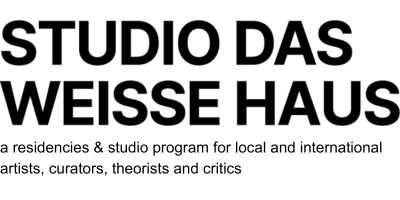Reading Circle 10, curated by Malou Solfjeld





“What would animals say if we asked the right questions?”
(quoted after Vinciane Despret)
It was with the intention to put this interconnectedness between all species, on the agenda, that I created the reading circle in Vienna back in March. It was biodiversity and companion species I wanted to curate an exhibition around. I titled the first reading circle “Guests, ghosts, hosts” and dedicated it to “neighbors” of all sorts, taking one of it’s starting points in the Michel Serres book “Parasite”. The second one was supposed to have happened on March 17, 2020 but got cancelled due to curfew. But scrolling back on instagram, you can see the title we prepared back then: “What would animals say if we asked the right questions?” I have decided to make this the title of today’s reading circle, since the recordings people have sent to me this week, have all been around animals. I didn’t choose any of the texts, in fact I didn’t know any of them in advance, but I found it magical how they all tried to answer this question.
Listen
Reading list 10
Katie McDoughall reads
“Wild Seed”, written by Octavia Butler
“I am tempted by an extract from “Wild Seed” by Octavia Butler, specifically the bit where she becomes a dolphin. I particularly like this text because of the way the main character, Anyanwu, can shape shift. Not only does this ability present a sort of kinship with other earthly creatures, but this ‘hybridity’ is what allows her to survive. It’ s also really magical and I find a lot of solace in fantasy at the moment!” explains Katie. “Dolphin hearing was superior to anything she had ever created in herself. As a dolphin, she could close her eyes and perceive an only slightly diminished world around her with her ears. She could make sounds and they would come back to her as echoes bearing with them the story of all that lay before her. She had never imagined such hearing”. (quoted after Butler)
Blake Daniels reads
“My Life in the Bush of Ghosts”, written by Amos Tutuola
“Reading to you sitting on my fire escape in my studio up in the Bronx, I’m gonna be reading one of the most important novels to me and my own practice, it’s called my life in the bush of ghosts from the author Amos Tutuola (1954), a Nigerian author, to me it was like a brainshatter for just thinking about prose and structure and writing, and the way that one occupies space and language. It’s a weird one, and this chapter is called my life with cows.” (text: Blake Daniels)
Mary McDonnell reads
“Winter Hours”, written by Mary Oliver
The following is written in an e-mail correspondence between Mary and Malou: “I selected “Swoon”—like we talked about the other day my relationship to this virus has changed. It morphs daily where all of a sudden/ quite out of the blue I have a sudden onset of emotion, as if someone is dumping buckets of water on my head. Other times I’m cool, okay, relaxing into the silence and stillness of things. These feelings come and go, which makes me reach to well-worn insightful old “friends” like Mary Oliver.
Her work centers around the natural world—close observation of the natural world, coming to larger truths through experiential learning. I like this essay where she focuses, brings attention/ makes a queen of a lowly/ insignificant house spider in a cellar. We gather she observed this animal behavior (with her face two inches from the ground), over days in the rental house described. This subterranean world held her in rapture…the spider devours the trapped cricket, and as the babies emerge they are eaten by other crickets—so the cycle goes, as all life and death, in continuum—and this is a world we are all privy too should we tune in. It’s there, waiting for us.”
Tereza Záchová reads
“Break the mirror”, written by Nanao Saki
In the morning
After taking cold shower
—-what a mistake—-
I look at the mirror.
[…]
I sit quietly in lotus position,
Meditating, meditating for nothing.
Suddenly a voice comes to me:
“To stay young,
To save the world,
Break the mirror.”
(quoted after Saki)
